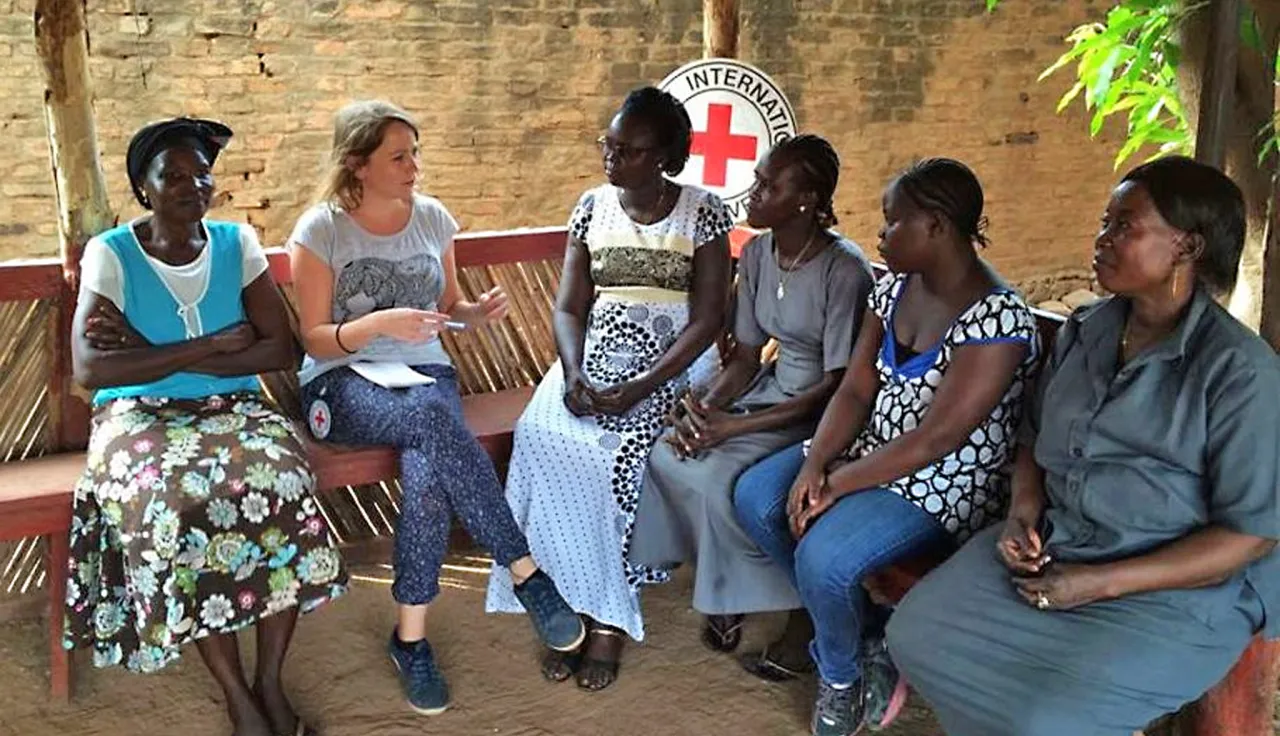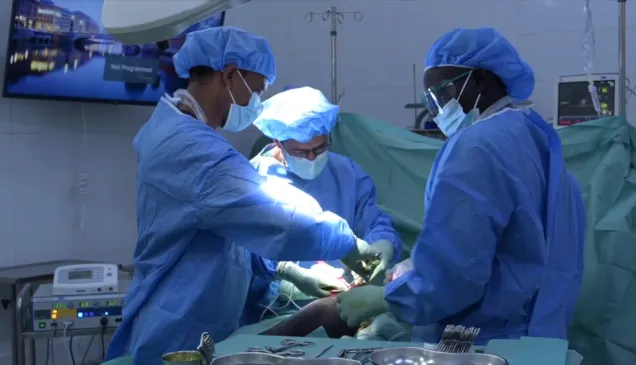South Sudan: Working with communities to help victims of sexual violence

Sexual violence is a problem throughout the world, but it often becomes more frequent during an armed conflict. Last year saw countless conflict-related rapes occur in South Sudan, so the ICRC is working with communities and the South Sudan Red Cross to help the victims.
Aurore Brossault is an ICRC mental health and psychosocial support specialist. She explains the problem and the ICRC's response.
What is the ICRC's view on sexual violence in the places where it works?
Sexual violence can be used as a form of reprisal, to create fear, or as torture. It may also be used systematically as a method of warfare, to destroy the social fabric of a community by causing shame for the victim and community. In short, sexual violence is a tool of power and humiliation.
Do we know how big a problem this is in South Sudan?
Sexual violence remains largely invisible. It is significantly under-reported because of cultural taboos, a lack of awareness and a lack of assistance. While some communities in South Sudan have ways of resolving disputes arising from sexual attacks, individual suffering remains. Not seeing a victim doesn't mean the victim isn't there, but it's difficult to come up with exact figures. There were probably hundreds of conflict-related rapes last year in areas where the fighting was fiercest, but any figures can only be rough estimates.
What effect do sexual attacks have on a person?
Sexual violence is a devastating experience, with damaging consequences. Not just for the victims, but also for their families and communities, the indirect victims. Women and girls are especially vulnerable and are the most frequent targets, but sexual violence can be perpetrated upon anybody, including men and boys. And it can happen at any age – we recently assisted a four-year-old child who had suffered sexual violence. Rape victims may suffer a wide range of physical and mental health problems that can follow them for life, including fistulas, chronic pain, HIV infection, anxiety, severe depression, a sense of helplessness and hopelessness, insomnia or recurring nightmares. These problems can even lead to suicide.
And a victim may also suffer socially?
Yes, victims may face double victimization. Not only potentially critical and long-lasting injuries and psychological trauma, but also enduring stigmatization and rejection by their families and communities. A family may be reluctant to report or seek treatment for a sexual attack because that would affect a girl's chances of getting married, since in the community's eyes she has "lost value" by being a victim of a sex attack. And this is a region where marriage is an essential economic asset for the family. Some women may be left unable to bear children.
What is ICRC doing about sexual violence?
Our first objective is to prepare medical staff to provide respectful and supportive care to victims and create a safe space for them. Privacy and confidentiality are essential if we want to build trust and promote services that do no additional harm. In most ICRC-supported health facilities, we provide a separate entrance for victims of sexual violence, so they can enter unnoticed. For example a door painted in a distinguishing colour at the maternity ward helps a victim to go directly to properly trained staff without passing through triage and telling her story to several people. Depending on the partners present on the ground, we may provide both medical and psycho-social care. We also refer people to existing medical services for care where possible and appropriate.
And how is the ICRC working with South Sudan's communities on the issue?
We're putting a lot of effort into community awareness. It's important to educate the community in order to ensure that victims and their children are neither stigmatized nor excluded. We must break the taboo surrounding sexual violence. So we're promoting clear messages with and for the communities, to explain what sexual violence is and what its consequences are, the importance of seeking help quickly and the fact that the victim should be supported and comforted, not blamed. With the help of key community members, such as traditional birth attendants, we're reaching patients in places ranging from the waiting areas of our medical facilities to remote villages. We also hope to start training people in communities where the ICRC has no permanent health presence so they can provide basic emotional and practical support to victims. We believe that community members are an invaluable resource, as they can respond most effectively.
Where is this kind of assistance taking place?
We're providing medical care to sexual violence victims in three medical facilities in South Sudan. Over the coming months, we will extend our programme to three more locations.
In Maiwut, Upper Nile region, we're the only organization present, so locally trained staff help victims both physically and emotionally.
In Waat and Kodok, Greater Upper Nile region, we offer medical assistance and awareness-building inside the health facility, but refer people to other NGOs for psycho-social care.
Finally, in Bentiu, in the north of the country we're going to be connecting victims and health services with the help of South Sudanese Red Cross volunteers. They're part of the community and are already connecting separated family members through phone calls. In future, they'll accompany victims to services, so they feel supported and can break the silence.



